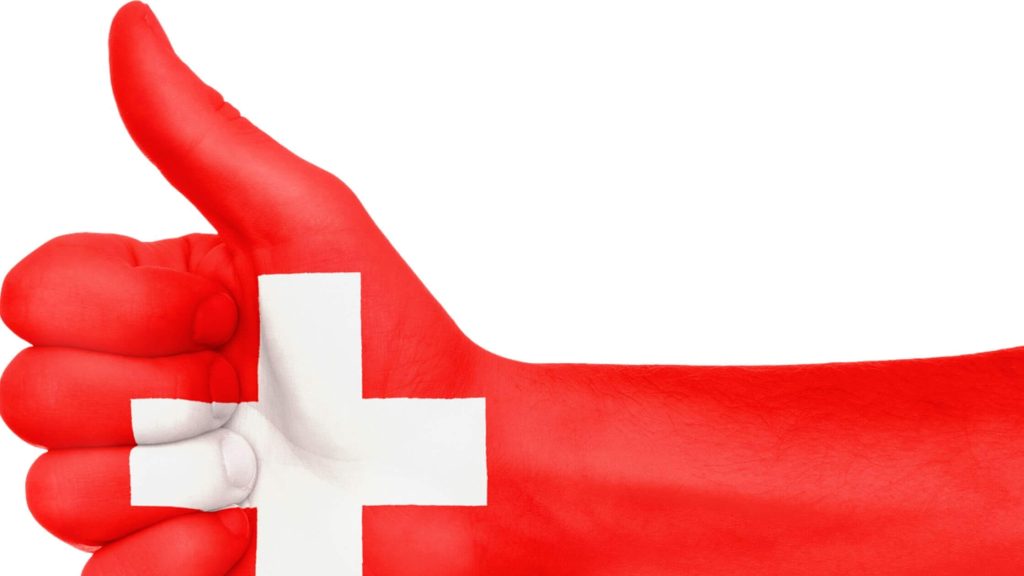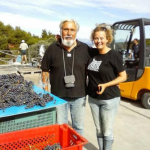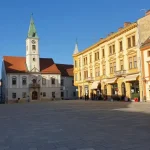Switzerland opened its job market for Croatian workers on January 1, 2022, making them equal to other citizens of EU member states. According to the latest official data, slightly less than 30,000 Croats already work in Switzerland, reports Index.hr.
Index has learned from Nataša Kačar, the owner of the Jobs in Tourism portal and employment agency, that the first workers from the hospitality sector have come for the winter season.
The need for workers in Switzerland, she says, is excellent, so she has published ads for chefs, assistant chefs, waiters, and bartenders from Croatia who want to work in Swiss hotels during the winter season.
In an interview with Index, she revealed the working conditions for Swiss employers and what interests them the most – the salaries.
“We published on our Facebook page a competition for catering workers for the winter season in Switzerland in 2021/2022. The interest is really high. Salaries range from 3900 to 4300 euros gross for chefs, with the proviso that these are auxiliary, not head chefs. Salaries of bartenders and waiters range from 3,900 to 4,400 euros gross plus tips. It is done in hotels, boarding houses, and a la carte restaurants. The work is until April 20, 2022. Still, with certain hotels, there is also the possibility of agreeing on a permanent employment relationship, with a probationary period of three months,” said Nataša Kačar for Index.
As for working conditions, she states that working hours are 9 hours a day, with a 50-minute break. Therefore, they work 45 hours a week with two days off.
The prerequisites are vocational school, minimum experience of 1 to 5 years, and knowledge of German. As for chefs, they may have lesser knowledge of German, in the B1 level, while waiters and bartenders are required to have an excellent understanding of German (B2).
“The Swiss are strict, they do checks, and if it turns out that a person doesn’t know German, they won’t be able to get a job even if they are the most qualified in their job. For example, the other day, I conversed with a man who worked in excellent restaurants in Croatia and is really qualified; he said he knows German. But after the job candidate interviews with me, he interviews my colleague from Switzerland who makes the further selection and tests his knowledge of German. That candidate, as it turned out, still did not know German and, despite the qualifications, did not get the job,” Nataša said.
She states that another condition that all candidates must meet has a Covid certificate.
As far as the staff required by the Swiss are concerned, preference is also given to candidates with experience working in hotels and on 4- and 5-star ships. Applicants must submit a detailed CV in German with a photo, and the highest quality candidates will be allowed to speak to their employer via Skype. They are required to be qualified for the job.
“The Swiss provide accommodation to candidates at a surcharge of 380 to 570 euros a month and food at a surcharge of 280 to 430 euros a month. As for the net salary, it is reduced from 13 to 20 percent gross, depending on the region. We are looking for staff to work in Bern, Zurich, Lucerne, Valais, Schwyz, and Graubünden,” said Kačar.
A look at the net earnings after deducting accommodation and food allowances.
A salary of 3900 gross is reduced by 13 percent, making the net salary around 25,000 kuna. After a person pays a total of 660 euros for accommodation and food, or about 5,000 kuna (the minimum amount as an example), the net salary is 20,000 kuna.
This is just one example; net earnings can vary depending on multiple parameters.
In addition to mediating the employment of Croatian workers abroad, mainly in Switzerland, Austria, and Germany, Nataša Kačar is also looking for workers for hotels and restaurants in Croatia, so she is aware of the differences in salaries and working conditions abroad and in Croatia.
“I get inquiries in Croatia where they ask me for a worker who would work their season on the Adriatic without days off. The catering industry in Croatia needs to change; employers need to offer normal conditions. People would stay in Croatia for seven thousand kuna, but normal working weeks, two days off, normal working hours are given,” Kačar pointed out.
She states that many people who worked in the hospitality sector changed jobs during the pandemic when restaurants were closed in Croatia.
“Then they saw what it’s like to have a private life, what it’s like when they have days off, and they don’t want to return to catering anymore. However, it should be emphasized that they are not paid for the main reason, but working conditions,” said Kačar.
The interest in working abroad, specifically now in Switzerland, is excellent during that time.
“We have good candidates, but the only problem is that few people know German, and the Swiss are looking for actual knowledge of German, especially for waiters and bartenders. I have been hiring workers in Switzerland for the last five years. Then, as the pandemic started, Switzerland closed all quotas, and Croatians could not be employed there, and now they can again.
Indeed, thousands of Croatian citizens will find a job in the hospitality sector in Switzerland, and according to the information I have, since March, the influx of Swiss companies to construction workers from Croatia has started. There will be a lot of work, thousands of workers are looking for work, not only in the catering industry, but knowledge of German is crucial,” Kačar points out.
A good opportunity is also provided to nurses, who, as she says, have twice the salaries of those offered in the hospitality industry.
She also states that the procedure for employment in Switzerland is far faster than in Croatia.
“Here, a maximum of two weeks ago, I was contacted by some candidates who want to go to Switzerland, and some have already sorted out all the paperwork and left, and some are going next week. But knowledge of the language is crucial,” she said.
She also states that residents of Croatia, from Slavonia to Dalmatia, are showing interest in working in Switzerland. In addition, she noticed that women have been calling them a lot lately. Before, it was primarily men.
“They are calling us from all over Croatia. Some are only looking for work in the winter because they already have an agreed summer season in Croatia. We get a lot of calls from women, that’s a change as before men always called. I was contacted by women from Slavonia, they would go to Switzerland permanently. There are a lot of those who want to move out and are looking for permanent jobs because salaries in Croatia are too low during the season, and working conditions are worse. Therefore, it is not surprising that there is a great interest in emigrating to Switzerland, Austria, and Germany,” she said at the end of the conversation.
The most famous Swiss job search portal currently offers 90,640 vacancies. In addition to workers in the hospitality industry, Switzerland is most in demand for nurses, construction workers, followed by skilled workers in engineering, financial services, and the IT sector.
According to the jobs.ch portal for nurses in Switzerland, the average annual salary is 78,853 Swiss francs gross (568 thousand kuna). For doctors, it is about 130 thousand francs gross (915 thousand kuna).
Depending on occupation and skills, salaries in the IT sector range from 64,500 Swiss francs gross (450 thousand kuna), which is the lowest average, to 203,000 Swiss francs gross (about 1 million and 400 thousand kuna), which is the highest average.
Construction workers earn an average of 62,400 Swiss francs gross (HRK 440,000) a year.
The cost of living is high in Switzerland.
According to the Numbeo portal, which collects data on the cost of living worldwide and provides comparisons, life in Switzerland is on average 153 percent more expensive than in Croatia. In contrast, renting apartments is 300 percent more costly than in Croatia.
The estimated monthly expenses of a family of four are HRK 38,452.87 (5,323.20 Swiss francs) without rent. Estimated monthly expenses for a single person are HRK 10,432.99 (1,444.28 francs), also without rent.
The monthly rent for a one-bedroom apartment in Swiss cities outside the center averages HRK 8,463, while in the center, it is around HRK 10,800.
Comparing the two largest Swiss cities – Basel and Geneva, consumer prices in Basel are 13.52 percent higher than in Geneva (excluding rent). Still, apartment rentals in Basel are as much as 35.17 percent lower than in Geneva. As for prices in restaurants, they are 3.86 percent higher in Basel than in Geneva, and in Basel, groceries are also more expensive – 18.19% higher than in Geneva.
As for living in Zurich, the estimated monthly expenses of a family of four are HRK 41,567.97 (5,754.43 Swiss francs) without rent. One person’s estimated monthly cost of living is HRK 11,267.44 (1,559.80 Swiss francs), also without rent. Zurich is 166.61 percent more expensive to live in than Zagreb, while rent in Zurich is on average 305.50 percent higher than in Zagreb – it costs about 2,000 Swiss francs (HRK 14,000) per month.
For more, check out our business section.










